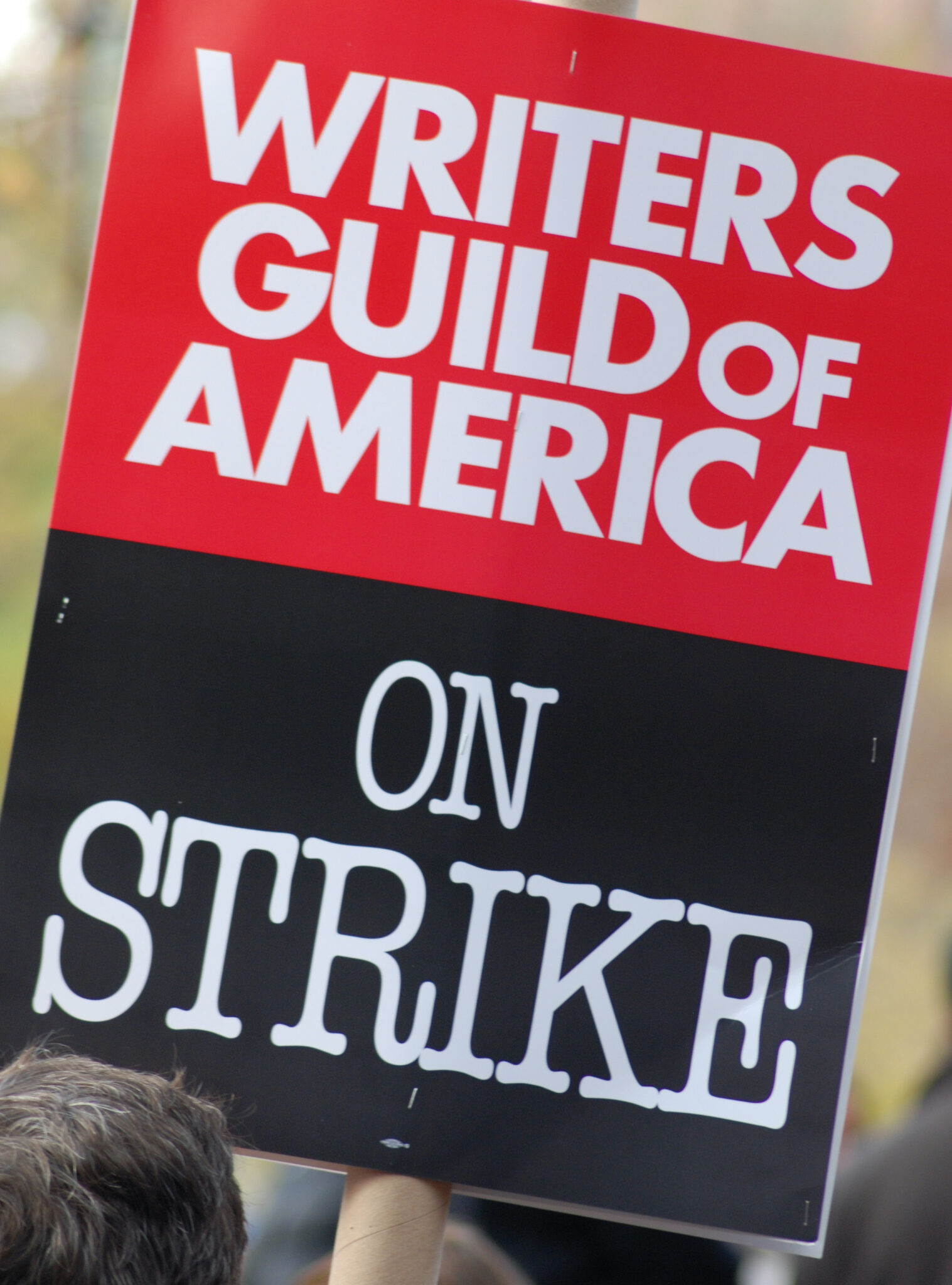
Iman Masmoudi is a student at Harvard Law School.
The Writers’ Guild is officially on strike; job openings have declined again; workers continue to protest in France.
Last night, the Writers’ Guild of America announced that they voted to authorize a national strike which would begin today, Tuesday, May 2, and the announcement was greeted with jubilation and support across Hollywood. The strike includes almost 20,000 workers who are asking for a restructuring of compensation contracts which haven’t adjusted to respond to the new revenue models based on online streaming rather than TV advertisements. As corporate profits have gone up, writers are left with a smaller share of the fruits of their labor, and their pay has gone down over the past 10 years as a consequence. In response, company negotiators claim the primary sticking points were on staffing levels rather than compensation at the major studios, including companies as varied as Paramount, Apple, and Netflix. Interestingly, previous reporting has shown that the union is also negotiating over use of artificial intelligence in the industry, indicating perhaps that writers view some forms of AI as a potential threat to job security. For now, short turn-over late night shows will go off air immediately, meanwhile viewers will see other effects from this strike on a longer timeline of months and even years. The W.G.A. views this moment as “existential” and said, “the survival of writing as a profession is at stake in this negotiation.”
The Labor Department released its March report today showing a continued decline in job openings which reached the lowest levels in two years . The Federal Reserve watches this number closely as a marker of broader economic health and as a gauge for its economic interventions to slow inflation without triggering crises. But as a labor market specific statistic, the trend is in conflict with the narrative that worker power continues to rise as workers gain bargaining power to the high demand for labor. Instead, the Fed views a high number of jobs per unemployed worker as a driver of high pay and therefore inflation. It rejoices in response to a decline in that number as it signals “the labor market’s gradual slowdown.” This macroeconomic view of the labor market remains a key point of tension between what workers want and what policymakers view as overall beneficial.
Yesterday, on May Day, French workers joined marches all over the country in continued mass opposition to the decision to increase the retirement age from 62 to 64. From the north to the south of France, government sources said 800K people joined protests while unions said turnout was closer to 2.3 million. President Macron continues to be plagued by the political fallout from this choice, which some have called “the biggest political threat” in his second term as President. Protestors object both to the substance of the policy and the way in which it was passed through a loophole without Parliamentary approval. The leader of the largest union in France said the message of the Paris marches, which included destruction of storefronts and small fires all over the city, was “no again to retirement at 64.” The May Day protests were the 13th national day of protest since January and also represented an impressive show of solidarity as the nation’s unions joined together for the May Day demonstrations for the first time in ten years.






Daily News & Commentary
Start your day with our roundup of the latest labor developments. See all
July 11
Regional director orders election without Board quorum; 9th Circuit pauses injunction on Executive Order; Driverless car legislation in Massachusetts
July 10
Wisconsin Supreme Court holds UW Health nurses are not covered by Wisconsin’s Labor Peace Act; a district judge denies the request to stay an injunction pending appeal; the NFLPA appeals an arbitration decision.
July 9
In Today’s News and Commentary, the Supreme Court green-lights mass firings of federal workers, the Agricultural Secretary suggests Medicaid recipients can replace deported farm workers, and DHS ends Temporary Protected Status for Hondurans and Nicaraguans. In an 8-1 emergency docket decision released yesterday afternoon, the Supreme Court lifted an injunction by U.S. District Judge Susan […]
July 8
In today’s news and commentary, Apple wins at the Fifth Circuit against the NLRB, Florida enacts a noncompete-friendly law, and complications with the No Tax on Tips in the Big Beautiful Bill. Apple won an appeal overturning a National Labor Relations Board (NLRB) decision that the company violated labor law by coercively questioning an employee […]
July 7
LA economy deals with fallout from ICE raids; a new appeal challenges the NCAA antitrust settlement; and the EPA places dissenting employees on leave.
July 6
Municipal workers in Philadelphia continue to strike; Zohran Mamdani collects union endorsements; UFCW grocery workers in California and Colorado reach tentative agreements.